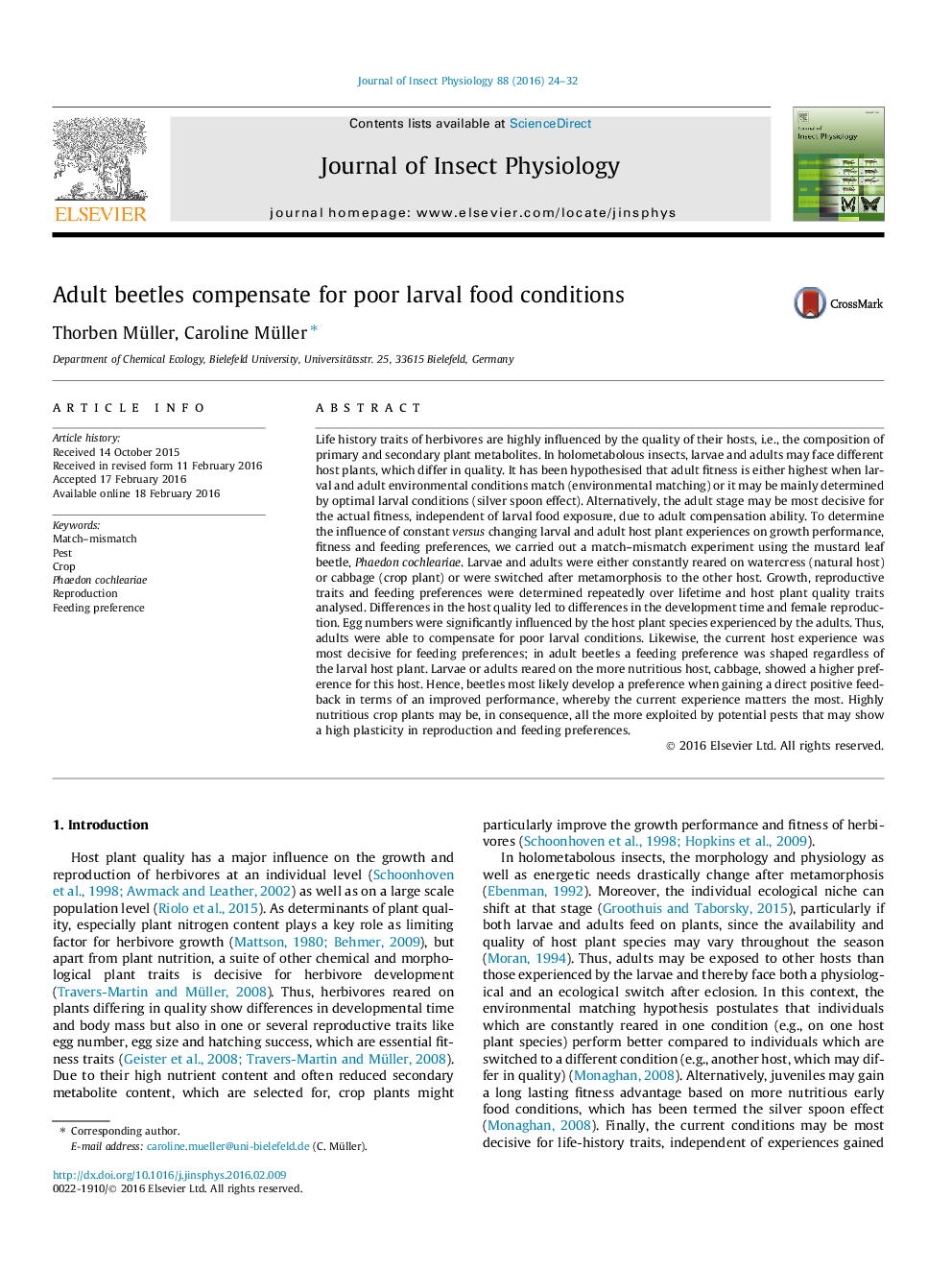| کد مقاله | کد نشریه | سال انتشار | مقاله انگلیسی | نسخه تمام متن |
|---|---|---|---|---|
| 2840284 | 1570982 | 2016 | 9 صفحه PDF | دانلود رایگان |
• Effects of larval versus adult food conditions on life-history traits were examined.
• Development, reproduction and preferences were studied in a match mismatch design.
• Adult, not larval, feeding experience determined reproduction.
• Adults were able to compensate for poor larval food conditions.
• Feeding preferences were shaped on cabbage due to positive feedback mechanisms.
Life history traits of herbivores are highly influenced by the quality of their hosts, i.e., the composition of primary and secondary plant metabolites. In holometabolous insects, larvae and adults may face different host plants, which differ in quality. It has been hypothesised that adult fitness is either highest when larval and adult environmental conditions match (environmental matching) or it may be mainly determined by optimal larval conditions (silver spoon effect). Alternatively, the adult stage may be most decisive for the actual fitness, independent of larval food exposure, due to adult compensation ability. To determine the influence of constant versus changing larval and adult host plant experiences on growth performance, fitness and feeding preferences, we carried out a match–mismatch experiment using the mustard leaf beetle, Phaedon cochleariae. Larvae and adults were either constantly reared on watercress (natural host) or cabbage (crop plant) or were switched after metamorphosis to the other host. Growth, reproductive traits and feeding preferences were determined repeatedly over lifetime and host plant quality traits analysed. Differences in the host quality led to differences in the development time and female reproduction. Egg numbers were significantly influenced by the host plant species experienced by the adults. Thus, adults were able to compensate for poor larval conditions. Likewise, the current host experience was most decisive for feeding preferences; in adult beetles a feeding preference was shaped regardless of the larval host plant. Larvae or adults reared on the more nutritious host, cabbage, showed a higher preference for this host. Hence, beetles most likely develop a preference when gaining a direct positive feedback in terms of an improved performance, whereby the current experience matters the most. Highly nutritious crop plants may be, in consequence, all the more exploited by potential pests that may show a high plasticity in reproduction and feeding preferences.
Figure optionsDownload as PowerPoint slide
Journal: Journal of Insect Physiology - Volume 88, May 2016, Pages 24–32
